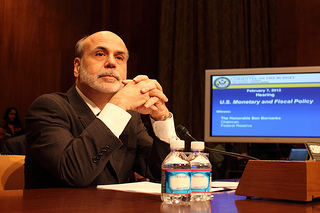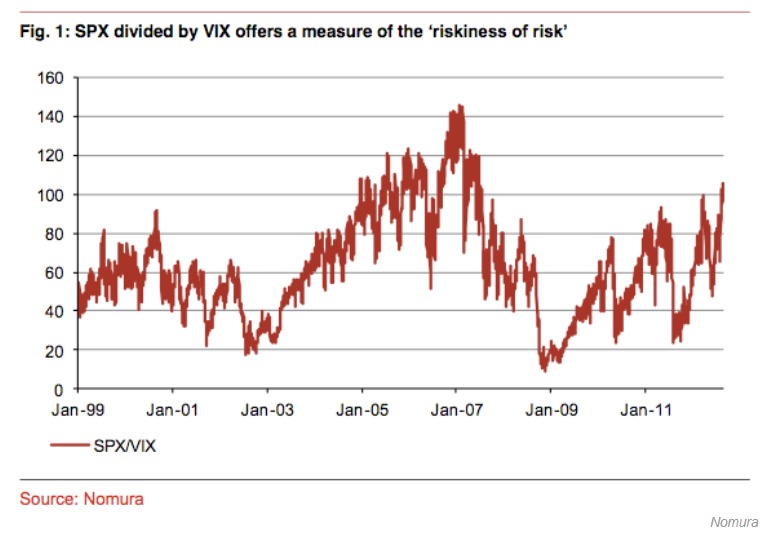 by Michael Tarsala
by Michael Tarsala
The Ben Bernanke Jackson Hole speech this week is being seen as a letdown. It did not offer a blatant hint about when the Fed might implement more quantitative easing — a move that could help bolster the stock market, as well as the economy.
It did, however, give a hint to what might make the Fed ready to pull the trigger: I think it’s going to take more bad news on the jobs front.
Bernanke talked at length about why he believes in the power of non-traditional economic policy (read: full-scale asset purchases by the Fed, or QE).
… With several years of experience with nontraditional policies both in the United States and in other advanced economies, we know more about how such policies work. It seems clear, based on this experience, that such policies can be effective, and that, in their absence, the 2007-09 recession would have been deeper and the current recovery would have been slower than has actually occurred.
He is clearly uncomfortable with the level of economic growth. In particular, he is worried about unemployment becoming a long-term problem.
… The stagnation of the labor market in particular is a grave concern not only because of the enormous suffering and waste of human talent it entails, but also because persistently high levels of unemployment will wreak structural damage on our economy that could last for many years.
Yet he also acknowledged that QE is expensive, and there are limits to what it can do.
As I have discussed today, it is also true that nontraditional policies are relatively more difficult to apply, at least given the present state of our knowledge. Estimates of the effects of nontraditional policies on economic activity and inflation are uncertain, and the use of nontraditional policies involves costs beyond those generally associated with more-standard policies. Consequently, the bar for the use of nontraditional policies is higher than for traditional policies. In addition, in the present context, nontraditional policies share the limitations of monetary policy more generally: Monetary policy cannot achieve by itself what a broader and more balanced set of economic policies might achieve; in particular, it cannot neutralize the fiscal and financial risks that the country faces. It certainly cannot fine-tune economic outcomes.
It may take a further dip in nonfarm payrolls, a big spike in initial jobless claims, and ultimately, a re-acceleration of the unemployment rate for the Fed to act. Keep in mind, the latest jobs data is not good, but it’s not clearly getting better or worse. Initial claims are holding steady, and the number of nonfarm jobs added are keeping the unemployment rate roughly steady at just above 8%.
The upshot: Following the speech, I think it’s hard to count on QE3 for September unless the jobs numbers get clearly worse.
If you would like to talk about how economic policy, the fiscal cliff or the presidential election might affect your investments, contact us at 866-825-3005 X 703.
We would also welcome the chance to talk to you about our defensively minded investment models and to help you decide if one or more of them might be right for you.
Invest with us, and your money is held in a top-tier brokerage account bearing your name, separate from everyone else’s money. It’s not sloshing around in a pool run by us or some third party, and there is no one earning interest on it.
It’s your own account; you can see the balance change on a daily basis, make investment changes extremely quickly, and add to or pull your money at your complete discretion.
Photo by: Medill DC



